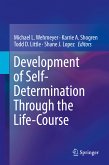This book provides the first comprehensive collection of topics that lie within the intersection of positive psychology and multicultural issues. Written by leaders in the field and using a broad definition of culture (including race, ethnicity, socioeconomic or social class status, disability status, religion/spirituality, sexual orientation, and gender), this book reviews relevant research, theory, and suggestions for practice and highlights the importance of considering context within a strengths-based framework. Beginning with a history of the intersection of multiculturalism and positive psychology and issues related to measurement and methodology, the volume proceeds to specific examples of current research in multiple areas of cultural identity. Finally, domains (e.g., school, work, psychotherapy) in which the findings of this work can be applied are described, as are directions for future theory and research in this area.
This volume is aimed at students, scholars, and practitioners across several fields including multicultural psychology, positive psychology, counseling and clinical psychology, school psychology, social psychology, as well as marriage and family counseling, and social work. It will serve as an important reference to any who are interested in learning about the intersection of positive psychology and multiculturalism.
Dieser Download kann aus rechtlichen Gründen nur mit Rechnungsadresse in A, B, BG, CY, CZ, D, DK, EW, E, FIN, F, GR, HR, H, IRL, I, LT, L, LR, M, NL, PL, P, R, S, SLO, SK ausgeliefert werden.









